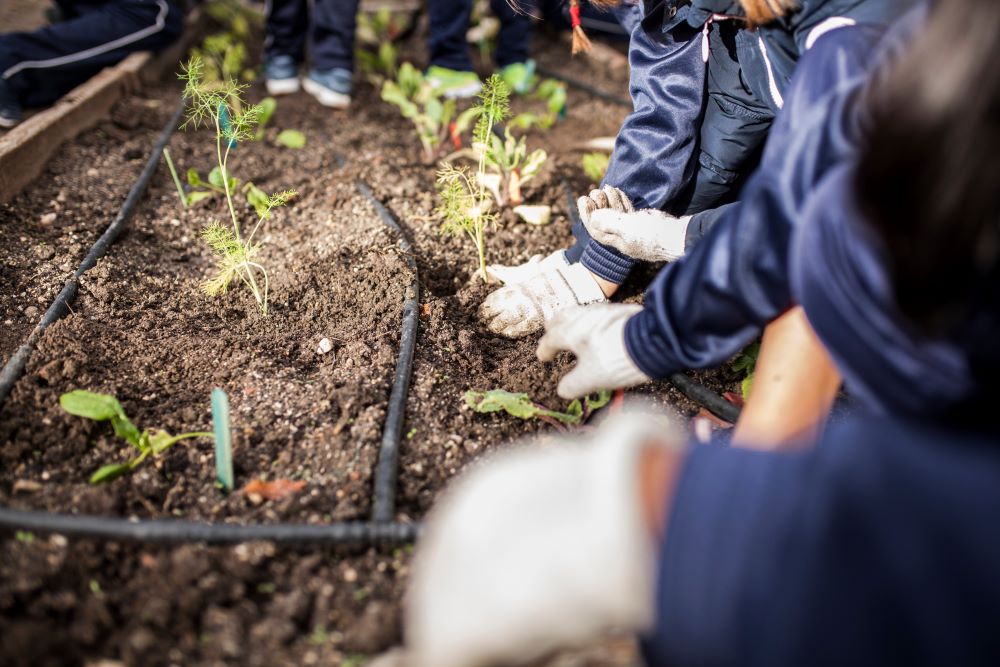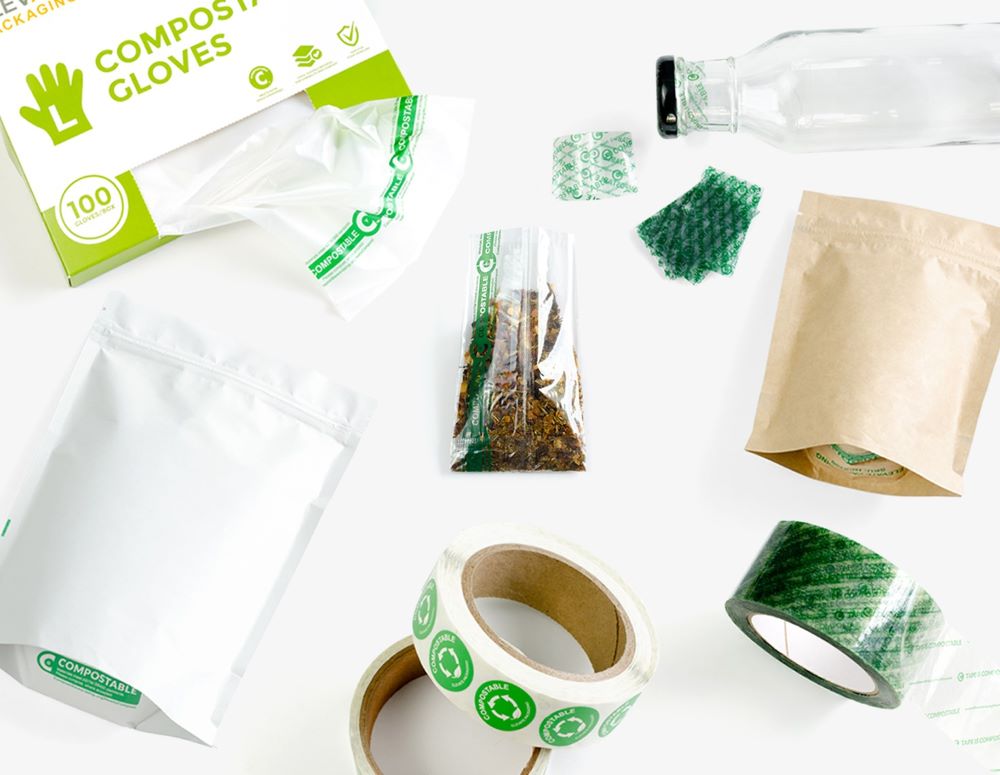
#EarthDayEveryDay
Earth Day is a catalyst for real positive change. It contributes to education and outreach by spreading knowledge about environmental challenges. Earth Day unites people worldwide in a common cause, inspiring people to get involved by raising visibility and making environmental goals seem more achievable.
More than just talk, Earth Day inspires hands-on action by providing accessible entry points to sustainability. Park cleanups, tree plantings - you name it. These events offer the perfect way for people to take their first steps towards sustainability. School programs, community events, and discussions help cultivate a spirit of stewardship, raising awareness while inspiring concrete commitments to protect our planet. As that sense of environmental responsibility takes root worldwide, individuals and organizations plant their stake by making public commitments to do better.
For businesses, Earth Day offers a powerful opportunity to bridge the gap between environmental knowledge and action. You can educate the public, grow your eco-conscious community, and empower individuals to truly make a difference. On April 22nd, plant those seeds of sustainable practices and watch them bloom!
Plastic Reduction Initiatives - Planet vs. Plastic
As a sustainable business owner, you understand the importance of addressing environmental issues like plastic waste. One of the key areas where businesses can make a significant impact is by reducing plastic waste. Plastic pollution is a major threat that can devastate our ecosystems, but by taking action to reduce plastic use, you're helping to protect our planet. Not only that, but you'll also attract and retain environmentally conscious customers who appreciate your efforts.
Let's not forget the potential cost savings that come with reducing plastic use. By lowering material and disposal expenses, you can also see a positive impact on your bottom line. And with governments worldwide introducing stricter regulations on plastic use, taking action now will ensure your business stays ahead of the curve and avoids any future compliance issues.
But it's not just about cost savings – by taking a stand against plastic waste, you'll build a positive brand reputation as an environmentally responsible company. This can lead to increased brand loyalty and sales as customers gravitate toward businesses that align with their values.
So, where do you start?
Reduce, Reuse, Compost
When it comes to reducing plastic waste, packaging is an excellent place to start. The first step should be to look for opportunities to reduce your overall packaging needs. Analyze your existing packaging and identify areas where you can eliminate unnecessary materials or switch to minimalist designs.
Once you've reduced your packaging as much as possible, the next step is to transition any remaining packaging to compostable options. Conduct a thorough audit to pinpoint areas where you can switch to sustainable alternatives like compostable pouches or cellophane bags. These compostable bags decompose naturally in a composting environment, reducing plastic pollution and promoting a circular economy.
Need help? Read our guide on navigating the process of Transitioning to Compostable Packaging. We'll walk you through auditing your packaging needs, identifying compostable alternatives, and implementing a sustainable packaging strategy tailored to your business.
By first reducing your packaging footprint, then switching to compostable solutions for any remaining needs, you'll maximize your impact on plastic waste reduction.
But don't stop there! Even if you've already started using compostable packaging, it's important to look beyond the obvious and consider those "hidden plastics" like plastic tape for sealing boxes, single-use hygienic gloves, or plastic stretch wrap for palletization. These seemingly small items can significantly contribute to your overall plastic footprint.
Find out more about these hidden culprits and sustainable alternatives like compostable tape, gloves, and pallet wrap: The Impact of Hidden Plastics in Business. We'll help you achieve a truly plastic-free packaging operation.
Zero Waste Goals: A Collaborative Approach
Implementing compostable packaging solutions is just one step towards achieving broader zero-waste goals.
To achieve zero waste, businesses should set clear, measurable waste reduction targets and establish comprehensive zero-waste programs. Tracking progress allows you to identify areas for improvement and celebrate your achievements.
Several best practices can help you achieve zero waste, these include:
- Waste Audits: Conducting regular waste audits helps businesses understand their waste stream, identify areas for reduction, and prioritize their zero-waste efforts.
- Employee Education: Educating employees about waste reduction strategies and best practices empowers them to actively participate in achieving zero-waste goals.
- Composting: Composting organic waste diverts a significant portion of material from landfills and creates nutrient-rich compost.

Create a Culture of Sustainability
A successful zero-waste journey is built on collaboration! Engaging both employees and customers is key to achieving long-term success. Building a community around sustainability allows everyone to work together towards a shared goal: a healthier planet.
Create a sense of collaboration and environmental responsibility by organizing community clean-up events, tree planting initiatives, or park maintenance projects. By encouraging collaboration, companies can cultivate a thriving culture of sustainability and establish themselves as leaders in the zero-waste movement.
No matter where you're at in your journey, your unique experiences can serve as inspiration for others.
One of the most effective ways to advocate for change is by sharing your experience. Got a blog? Talk about your sustainability efforts there. An Instagram page? Let your audience peek behind the scenes and see your sustainable practices in action.
Building a culture of sustainability requires a holistic approach. The Compost Stewardship Institute compostable packaging take-back program goes beyond individual businesses by ensuring these materials are properly composted, minimizing waste and creating valuable resources.
Ask us how we can help close the loop on your compostable packaging!

Spreading awareness about sustainability is a lot like a compost pile in your backyard. At first glance, it may not seem like much is happening. But just under the surface an entire workforce of microorganisms is hard at work, patiently breaking everything down.
Once you start getting more people on board with eco-friendly practices, it's like giving those microbes a steady supply of new material. The message begins to spread and multiply, just as they continue working away. And that's when things really start to heat up! Discussions around reducing waste kick into high gear. Businesses and consumers take positive actions. Before you know it, the pile is radiating warmth - sustainable change is actively cooking its way through your community.
While Earth Day serves as an annual reminder, businesses should strive to cultivate a culture of environmental stewardship throughout the year. By integrating zero-waste practices into daily operations, you can significantly reduce your environmental footprint and become leaders in sustainability throughout the year. Just like a compost pile thrives with regular care, spreading awareness about sustainability is an ongoing journey fueled by collaboration and shared passion.
Seeking a Sustainable Packaging Partner?


